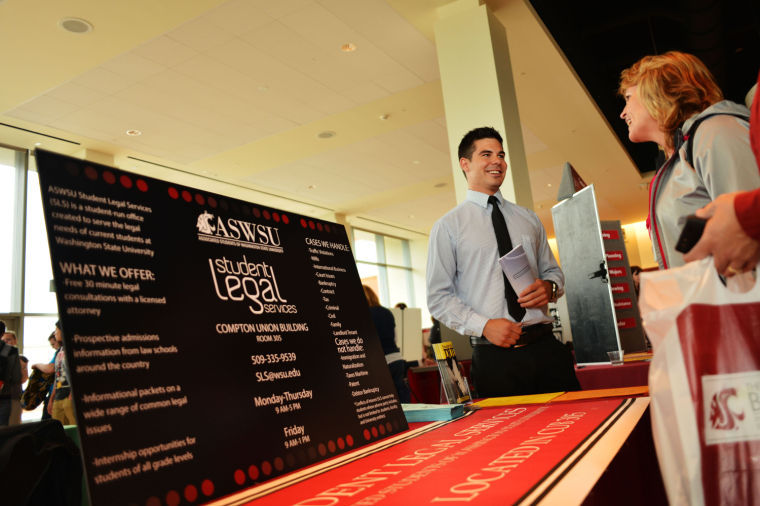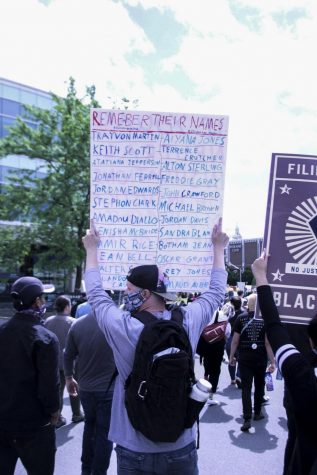Guest commentary: Checking the fine print
Chris Morgan speaks with attendees during an Alive session in the CUB senior Ballroom, June 25, 2013.
February 10, 2014
For many WSU students, this marks the time of the year to renew or even sign a lease for the first time. Amid the excitement of moving into a new place, it can become easy to overlook many of mundane but extremely important details that go with it.
Signing a lease gives way to a world of responsibility—both personally and financially.
A lease is a long and complicated legal document that is written much more inherently to protect the rights of the landlord than it is to protect the tenant. For this reason, it is imperative for individuals to be aware of the implications of their lease and their rights as a tenant before deciding to sign. Our goal at Student Legal Services is to make you proactive, rather than reactive, in your approach toward the contractual obligations associated with your property of choice. It will save you time, stress and money.
The reality is that Pullman is a saturated real estate market. As a result, less competition between companies and private owners allows for inflated prices and more potential for manipulation in the leasing process. It’s up to you to protect it through a number of precautionary measures.
Here are a few main things to consider:
Before you sign the lease:
Go see the place that you will potentially live in. Don’t trust online photographs or the word of your landlord. Ask to see the property and see for yourself.
Don’t assume that you know what every statement in the lease means in order to just get through and sign it. Read it carefully and ask your landlord questions for clarification. There may be hidden clauses about deposit returns, your ability to sublease, etc.
Make an appointment to speak with Student Legal Services about your lease and its implications. It’s free and will help you to understand exactly what you’re getting yourself into!
Once the lease is signed and you move in:
Detail and take pictures of every last thing on the inspection list. If there are things that are wrong with the living space, have pictures and get it in writing. Your word is not a legal document. The more tangible materials you have in the form of photos, emails, letters, etc., the better. This is the kind of information that can hold up in a small claims court. Your lack of detail during the move-in damages inspection could serve as eventual grounds for additional charges or forfeiture of your damage deposit.
Alert your landlord immediately when problems occur. If an appliance is not functioning properly, let them know via an email or a handwritten letter. This way you have a written record of the problem and when exactly it occurred.
While you’re living in:
Treat your property with respect. Remember that you are financially liable for the damages that you create, especially when you are renting. If people are over at your place and break things, you could also be financially liable for that if you cannot get those people to pay for it.
Ultimately, it is up to you to be conscious of what is going on and to protect your own rights. As we work on new policies to make the leasing process more transparent and beneficial to WSU students, we must remember to not be manipulated. Be aware, and be proactive!
For a full list of leasing tips and a copy of the Washington Landlord-Tenant act, visit us in our office in CUB 305 or online at sls.wsu.edu.






















